
This post is part of a series of Queerty conversations with models, trainers, dancers, and, well, people who inspire us to stay in shape–or just sit on the couch ogling them instead.
Name: Steven Wakabayashi, 30
Occupation: Designer.
City: New York
How about we take this to the next level?
Our newsletter is like a refreshing cocktail (or mocktail) of LGBTQ+ entertainment and pop culture, served up with a side of eye-candy.
Favorite work out venue:
I do a lot of yoga, so I love doing yoga at the Laughing Lotus. I also do a bit of cross fit on the side.
Do you have a favorite exercise playlist?
For yoga, something mellow, something soothing. For crossfit, EDM music. I just have my Spotify Rewind, and apparently I listen to a lot of tropical deep house. I’m big into experimental music, like pots and pans clanging together.
What’s the best outfit for working out?
Shorts & a tank top.
How do you balance staying in shape and having fun?
Really interesting story: I got super sick about two years ago. I had really bad digestive issues, a combination of working out too much, work stress and not getting enough rest. I had to take a step back. I was doing crossfit five or six times a week. Now, I just try to be healthy. It’s finding a balance of knowing what I need to do to [stay in shape] and being mindful of my body. It was a rude awakening, but enlightening.
What’s a basic, if useful, work out tip you can offer?
It’s defining what fitness and good health look like to you. For some people, it might be getting more muscular. For others, it could be getting leaner, and for others, just maintaining the way you look. Experiment. Listen to your body and see what resonates. Everyone is on their own journey.
When we say mindfulness, what exactly does that entail?
It means so many different things across different cultures. For me, mindfulness is just consciousness. It is the practice that you do every day to be more conscious. For people, it can be different. It can be consciousness for work, for health, for your interactions with people. It’s the action that we take to further our engagement with or deepen our connection with our consciousnesses.
What’s the best way to practice?
There are so many ways, but the simplest way for a beginner is to slow down. We’re expected to move at 100 miles per hour all the time. We hit a point where our bodies exhaust and fall apart. We’re not able to do everything. Listen. See what resonates in your body. Just sit down in silence and meditate. Instead of multitasking while you eat, sit and enjoy a meal with just yourself or other people.
How does living a mindful life prepare you for the perils of life?
Great question. Mindfulness is like training. It’s learning to pick up a box without injuring yourself. Mindfulness is slowing down, listening to ourselves, so we can respond to negative stimuli. Sitting in silence, we can listen to our thoughts more, be more introspective, so we can react in a better way. We are constantly processing, consciously or unconsciously. Mindfulness is really bringing all of what we process unconsciously into our consciousness.
You’ve been very vocal about the need for more Asian inclusion in the media. What would you say to an advertising exec who objects on the basis of Asians don’t sell, or that nobody would watch a TV series with Asian characters?
I would ask what are the statistics to defend that. We’ve never had that to begin with, so there aren’t statistics based on [images of Asian people] not selling. In a country like the United States, where we have a melting pot of cultures, of the intersectionality of identity, it’s really thinking how we show up for everyone. Even in minority populations, it’s figuring out how we show up for these people. GLAAD has noted an uptick in diversity, so I think that shows that people will watch something even if they’re not a minority depicted on screen.
You write a lot about the insular, unspoken nature of queer Japanese culture. In short, how do we open that up to hear more stories?
First and foremost, it’s creating a space, a platform for dialogue to happen. To create space means giving up space. A lot of people don’t understand that. [We need] a critical lens on both sides. Whenever we talk about the concept of racism or the concept of culture, it is a very polarizing topic. These are people’s identities we’re talking about. What we need to be more mindful and cognizant of is to respect everyone’s experience. Everyone has a unique experience. They have a right to vocalize it. When we talk about a culture that doesn’t talk about [homosexuality] much, it’s not just Japanese culture, it’s Asian culture as a whole. We’re talking about a culture rooted in filial piety. Children do everything for parents out of respect without question. It’s also a culture rooted in respect for authority figures, like elders. It becomes really tough within these communities to open up the space. What’s really beautiful, I think, is that we’re creating a third culture that brings in elements of both cultures to open up a dialogue. It’s a great opportunity.
We hear so much about both fetishism for Asian men, and the rather ugly “No Asians” stereotype. What is the root of the fetish? Are the two connected?
It’s fascinating. It’s deeply rooted in history: how Asian culture was initially presented to the West. It was over-exotified. That history has really informed the way we look at Asian culture, especially as Americans. I think it came out of the women’s rights movement back in the day, and American men who were so anti-independent woman. They relied on finding wives from outside American culture, which ended up being Asian culture. So you have this culture of importing women from Asia that were a specific type of role: submissive housewives. What came out of that was this stereotype that were then applied to Asian women and men. That still carries into queer culture. So you have a stereotype put on queer men. So it’s fetishism from this lens of Asian men fitting a certain role. You also have men who don’t want a certain kind of behavior from a partner. They assume because they’re looking for certain characteristics, they shouldn’t look for Asian men. So you get a culture of men who say “no Asians” because they’re not looking for a stereotypical role. It’s toxic.
Related: Yogi and body positivity advocate Jessamyn Stanley on the virtues of topless workouts
In my own experience, when I first came out and started looking on the apps, I was inundated with all these racist messages—a lot of people joking about my sexual role. I had so many messages about being a bottom or whimpering during sex. It was very distasteful. I didn’t realize I had to fit within certain confines. I started encountering men writing “no Asians” on their profile, which blows my mind. It blows my mind that people would write that on a profile. I can’t say “no Asians” when I’m hiring for a job. It’s not a preference, it’s racism.
What role do gender roles/masculinity worship play in the oppression of queer Japanese people?
The gender roles are based off of heteronormative roles. In a couple, someone has to fulfill both a masculine and a feminine role. I think as queer culture becomes more mainstream and starts to explore more of its identity, everyone has started to figure out some gender roles are extremely toxic. In a relationship, you don’t need to have a “man” and a “woman.” A lot of people still struggle to figure this out. It continues to oppress queer people in general because it’s a new subject. Queer rights have only started to be given in the past 5, 10, 20 years, and even then, only in some countries. Especially in the Asian community, and the Japanese community, [the culture is] still extremely oppressive. Queer rights don’t exist in most parts of Asia. In most of Asia, they don’t even recognize queer relationships, and decriminalization of same-sex relationships. Really, these gender roles restrict our ability to look outside of that. I’m so grateful to be in a country where we can have these conversations about intersectionality and create a platform to make mindfulness and wellness more acceptable for people like me.
What do you keep on your nightstand?
My kindle, and a pair of blue-light-blocking glasses to get better sleep. It blocks out light from my phone and my Kindle. I read a lot of books by Buddhist monks.
Bonus Pics:








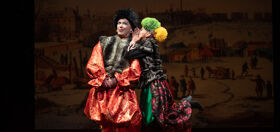

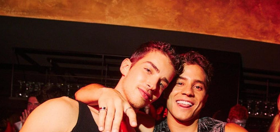
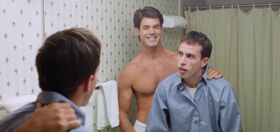




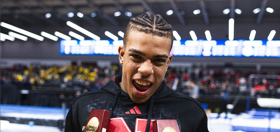
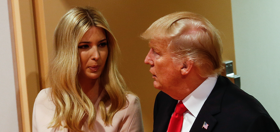

rustyiam
He doesn’t know the difference between applying for a job and applying for a sexual encounter? Sad!
Coruna2018
Like you don’t know the difference between being an unrepentant racist and a loving human being. May your “curse” be falling in love with an Asian or American man of Asian descent!
PLAYS WELL WITH OTHERS
I can never understand the bias against Asian guys by some Gays. (As evidenced by certain Dbags right here in Queerty comments)
I find them to be incredibly attractive had an awesome 9-year relationship with an amazing Asian guy. and the myth that they are all bottoms and members of the itty bitty teeny weeny committee are just that: myths. My Ex had one of the most massive units I have ever encountered
And Steven actually seems to be a genuinely nice guy after the last QWERTY thread I reached out to him he replied right away with a real nice email (XK)
frankcar1965
I wouldn’t want him not because he’s Asian, but that he looks and acts like a big nelly Queen!
SPEEDOSWIMMER
I’m Asian – BIG OLE BOTTOM – not well-endowed at all. Into sexy white guys. Been known to get sticky with rice too.